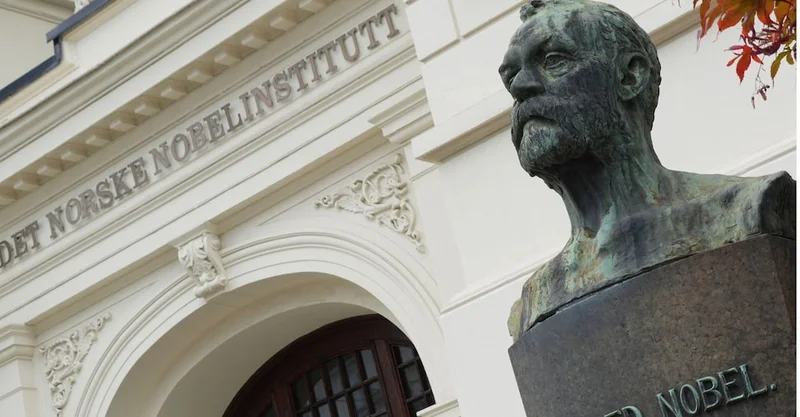Philippe Aghion's Nobel Prize Win: Who He Is and Why You're Supposed to Care
So, the folks in Stockholm just handed out the Nobel Prize in Economics to a trio of academics—Philippe Aghion, Peter Howitt, and Joel Mokyr—for explaining "innovation-driven economic growth." That’s the official, sanitized-for-your-protection version.
Let me translate it into English for you. They won a gold medal for putting a fancy, intellectual bow on the brutal process that gets you laid off.
Their big idea is "creative destruction." It’s the theory that for an economy to grow, new things must constantly smash old things to bits. The shiny new factory replaces the rusty old one. The algorithm replaces the accountant. The delivery app replaces the neighborhood restaurant. It’s a relentless churn, a meat grinder that powers the engine of progress. And these guys mapped it out, gave it a respectable name, and now they get to collect a check and a handshake from a king.
Good for them. I’m sure the millions of people whose careers, skills, and livelihoods were part of the "destruction" side of the equation are thrilled to hear the process has been so elegantly explained. It must be a real comfort.
Celebrating the Architects of Anxiety
Let’s be real. "Creative destruction" is the most lopsided term in the modern lexicon. For the venture capitalist, the tech CEO, or the tenured professor at INSEAD or Brown, it’s all "creative." They see the glorious upward slope of a graph, the "disruption" of a market, the beautiful, abstract dance of capital flowing from dying industries to new ones. They’re standing on the hill, watching the fireworks.
But if you’re the one working in the building that’s being demolished, you don’t give a damn about the "creative" part. All you feel is the destruction.
Think of it like this: A team of brilliant architects designs a system for urban renewal that involves demolishing old neighborhoods to build gleaming skyscrapers. They win international awards for their visionary plans. Their models are perfect, their math is impeccable. But they never have to talk to the families being evicted. They don't have to pack the boxes or figure out where to go next. They just collect the accolades for the blueprint. That's what this Nobel Prize feels like. It’s an award for drawing the blueprint of our collective economic anxiety.

Aghion, Howitt, and Mokyr are undoubtedly brilliant men. They’ve spent their careers at elite institutions like Harvard, Northwestern, and the National Bureau of Economic Research (NBER)—a place where, it seems, you have a pretty good shot at getting a Nobel. Forty-three affiliates, they say. It’s a club, and they’re all congratulating each other for figuring out how the machine works. But does anyone in that room ever stop to ask if the machine is working for everyone? Or is the goal just to admire its efficiency as it grinds people into dust?
The Ivory Tower's Blind Spot
Here’s the part that really gets me. The prize is for explaining a phenomenon. Not solving it, not mitigating its fallout, just explaining it. It’s the ultimate act of academic detachment. It’s like a doctor winning an award for a stunningly precise diagnosis of a terminal disease, without ever having to develop a cure. The patient, offcourse, is still screwed.
The entire framework of "creative destruction" implicitly accepts a horrifying level of collateral damage. It treats human beings—with their skills, their mortgages, their kids’ college funds—as obsolete inventory to be written off the books. A factory worker in Ohio whose job gets shipped overseas is just a data point in the "destruction" column. A graphic designer whose work is now done better and faster by an AI is just a necessary casualty in the march toward a more "creative" future.
And what a future it is. A future where your skills have a shorter and shorter shelf life, where you’re expected to "reskill" and "pivot" every few years just to stay afloat. This isn't progress; its a state of permanent, low-grade panic. And now we're giving a prize to the guys who first told us this was not only normal, but necessary for growth.
This is a bad idea. No, 'bad' doesn't cover it—this is a profoundly tone-deaf act by an institution that seems completely disconnected from the world most of us live in. While tech companies are laying off thousands in sterile Zoom calls and AI is threatening to hollow out entire creative industries, the Royal Swedish Academy is popping champagne for the theory that underpins it all. It’s grotesque.
What happens when the "destruction" outpaces the "creation"? What happens when the jobs being eliminated are replaced not by better jobs, but by precarious gig work and algorithmic oversight? These are the questions that matter, but I doubt they get asked much at the NBER holiday party. They're too messy, too human. They don't fit neatly into an economic model.
Then again, maybe I’m the crazy one here. Maybe we’re all supposed to just cheer for the wrecking ball and hope we’re not in its path. Maybe we should be grateful that these brilliant minds have given us a name for the economic vertigo we all feel. But somehow, I doubt it helps when the pink slip arrives.
So We're Giving Out Trophies for This Now?
At the end of the day, this award just feels like the intellectual elite telling the rest of us that our economic pain is not a bug, but a feature. They’ve looked at the system, seen how it chews people up and spits them out in the name of "innovation," and they’ve decided to call it genius. It’s not. It’s a tragedy that we’ve normalized, and now we’re handing out medals for it. Give me a break.
Tags: philippe aghion
Broadcom's (AVGO) Stock Surge: Analyzing the Catalyst and What the Numbers Indicate
Next PostSpaceX's New AI Supercomputer: What It Is and Why It Changes Everything for Space
Related Articles
